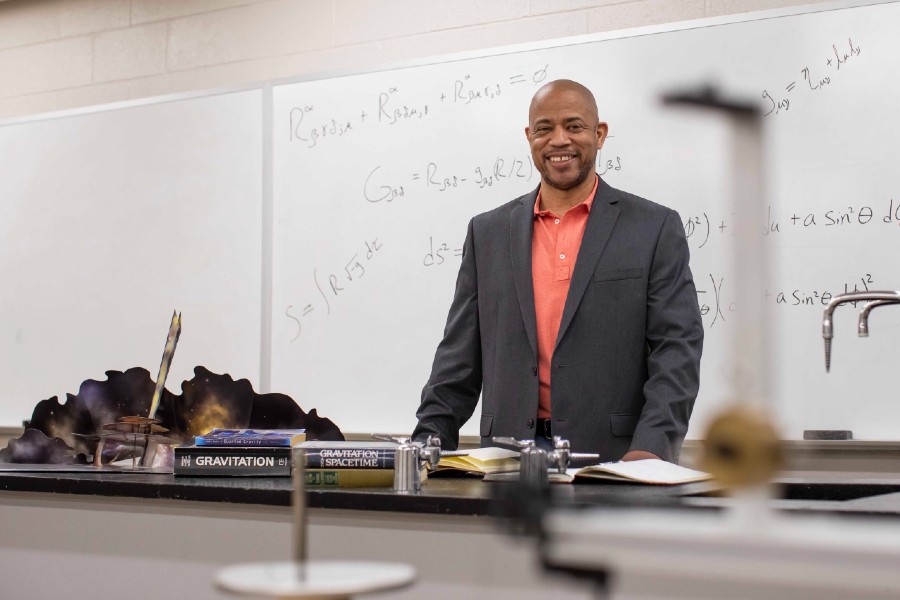Physics professor awarded use of world's eighth most powerful supercomputer
Faculty and students have access to NSF-funded supercomputer to advance science on black holes and plasma jets.
Cate Zenzen |

Michael Watson, professor in the physics department, a researcher of black holes and a Campus Champion within the Extreme Science and Engineering Discovery Environment (XSEDE) program, has secured the ability for both he and Lipscomb students to use the eighth most powerful supercomputer in the world.
The Frontera was created by the Texas Advanced Computing Center in 2018 thanks to a $60 million design and building grant from the National Science Foundation.
Watson and his research team received 100,000 node hours on Frontera, 1,000 node hours on the Graphic Processing Unit and 50,000 gigabytes of storage to advance their study: “Computational Study of Astrophysical Plasma,” which considers supermassive black holes and the production of plasma jets from active galactic nuclei.
In addition, as the Lipscomb champion in the XSEDE, an NSF-funded project that enables university students and faculty to access a national supercomputer network, Watson opened an opportunity for students to access computers designed for the most experienced academic computational scientists right from their personal computers. To run advanced simulations and utilize terabytes of storage students need only to log into their account.
Check out these stories to learn more about how Lipscomb’s physics department is advancing discovery among students and faculty: